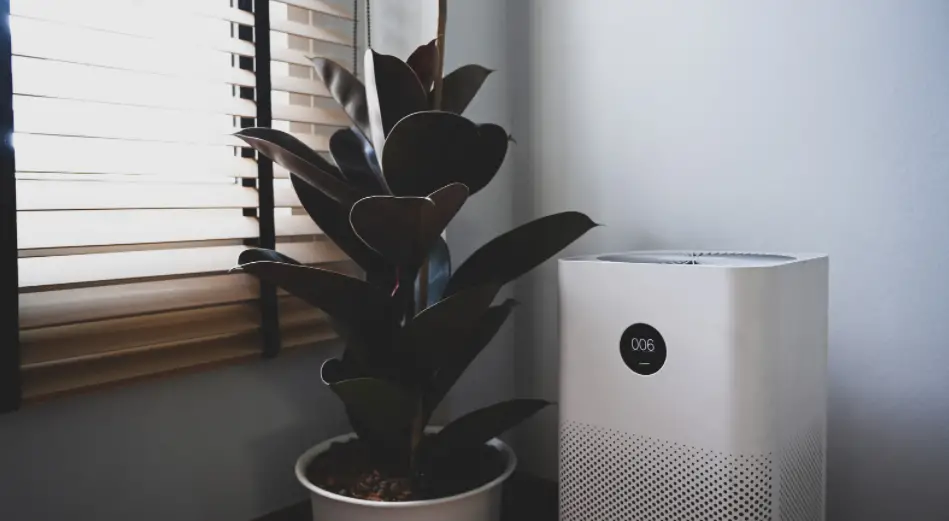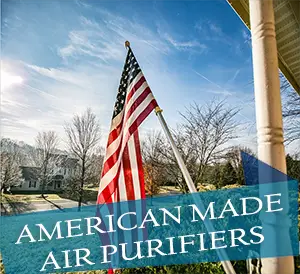
With the lingering airborne diseases nowadays, you might be wondering: should everyone have an air purifier? We care about your health and that’s why we want to tell you about the benefits of having an air purifier at home (or where you work).
The air we breathe is not always clean, especially if we live near the city or in the suburbs. There’s always the threat of pollution that comes from various sources, such as vehicles, tobacco smoke, factories, household chemicals, and much more.
That’s why companies started making air purifiers as a way to minimize the pollutants in the air – the ones that can’t be seen by the naked eye and can’t be cleaned by just wiping them off the surface of your table.
Do we actually need an air purifier?
Yes, air purifiers are not only greatly needed but are also worth investing in. That’s why you’ll find them not just in hospitals but also in many households. Here are reasons why:
1. They clean your air from allergens
If you’re often having asthma or hay fever attacks, even the best air purifier on a budget with the correct HEPA filter will help you alleviate allergy symptoms.
Asthma and hay fever symptoms are triggered when pollen, pet dander, dust, and other similar pollutants are in the air. With an air purifier around to clean the air, these symptoms will lessen, resulting in peace of mind (and also better sleep).
2. They will remove dangerous toxins from the air
Various household chemicals emit VOCs (volatile organic compounds), which are harmful to our lungs and entire system when we breathe them in successive amounts. Having an air purifier that has an activated carbon filter, will suck up these VOCs from the air, resulting in fresher breathing space.
These VOCs have been known to cause various diseases, such as cancer and the like. That’s why if you always use household chemicals at home for cleaning stains and you can’t avoid using them, having an air purifier lessens their effect on the environment.
3. You will sleep better
With an air purifier turned on all day, you won’t have to put up with coughing and sneezing in the middle of the night due to dust and other allergens. If you have a HEPA air purifier in the room, it will clean even the smallest particles so you’ll have an undisturbed sleep.
This is why air purifiers greatly benefit babies and children because they need sleep for development. If you’ve been having insomnia or at least lack of sleep due to respiratory problems and disturbances, why not try having an air purifier in your bedroom?
4. Air purifiers kill bacteria and viruses
With the right filter media, an air purifier will kill bacteria and viruses that cause airborne diseases, such as the flu or the common cold. In bad weather where getting sick is very common, this is a big factor to keep your family safe from such diseases.
HEPA filters are usually sufficient for capturing these small particles but we’d recommend a medical-grade or H13-type HEPA filter, just to be sure. Seniors and kids are likely to get sick, which is also why having an air purifier around benefits them the most.

Do doctors recommend air purifiers?
Yes, air purifiers are not just recommended by doctors but they also use in most hospital settings and for their clinics. That’s also especially in the case of today’s time, where disinfection is very important – and air purifiers fulfill that job.
However, air purifiers, as advised by most doctors, should be strategically placed around the house (or room). Here are the following factors that you should consider:
1. Make sure to get the right type of filter
HEPA filters are the most common air purifier filters that you will find on the market. They will filter particles as small as 0.3 microns so that means pollen, pet dander, dust mites, smoke particles, and the like will be out of the way of your breathing space.
On the other hand, having activated carbon filters help a lot if you often have household chemicals or if you have pets at home. These filters eliminate bad odor and VOCs to maintain healthy air indoors.
Some other air purifiers also have UV lamps, which will help disinfect surfaces and areas around the house (or the hospital/clinic), which is important in today’s health crisis.
2. Choose your placement properly
Air purifiers should be placed strategically so that they’ll clean the air properly. They won’t do anything if you put them in an area where the airflow is blocked. If you have a large room, consider having two units on two sides or more.
3. Know your room size
Most air purifiers come with a rated room size so that you’ll know if it is okay for your room. Many companies have the best air purifier for 300 square feet if you have a small room or something bigger if needed.
4. Clean and/or change your filter regularly
Filters for air purifiers (typically HEPA filters) last around 6 months before they need to be replaced. On the other hand, the washable filters only need a good soak before they can be used again.
5. Consider eco-friendly choices
An air purifier without ozone (or at least on the safer side of it) will benefit not just your lungs but also the environment. Fortunately, many companies are now making ozone-free air purifiers.

What is the best brand of air purifier?
To help you decide, we have an air purifier buyer’s guide, which details the different air purifier specifications that you need to look for in a unit. This will ensure getting the right air purifier that’s best for you.
With that said, among the top air purifier brands that we often see in the market are:
- LEVOIT
- Coway
- Blueair
- Honeywell
- Austin
- Dyson
Conclusion
To wrap it up, air purifiers are worthy investments for your health in the long run. You will eventually notice a difference when you sleep at night as you will no longer cough or sneeze too much due to the stuffy air. With an air purifier beside you cleaning the space you breathe, your lungs will thank you!


